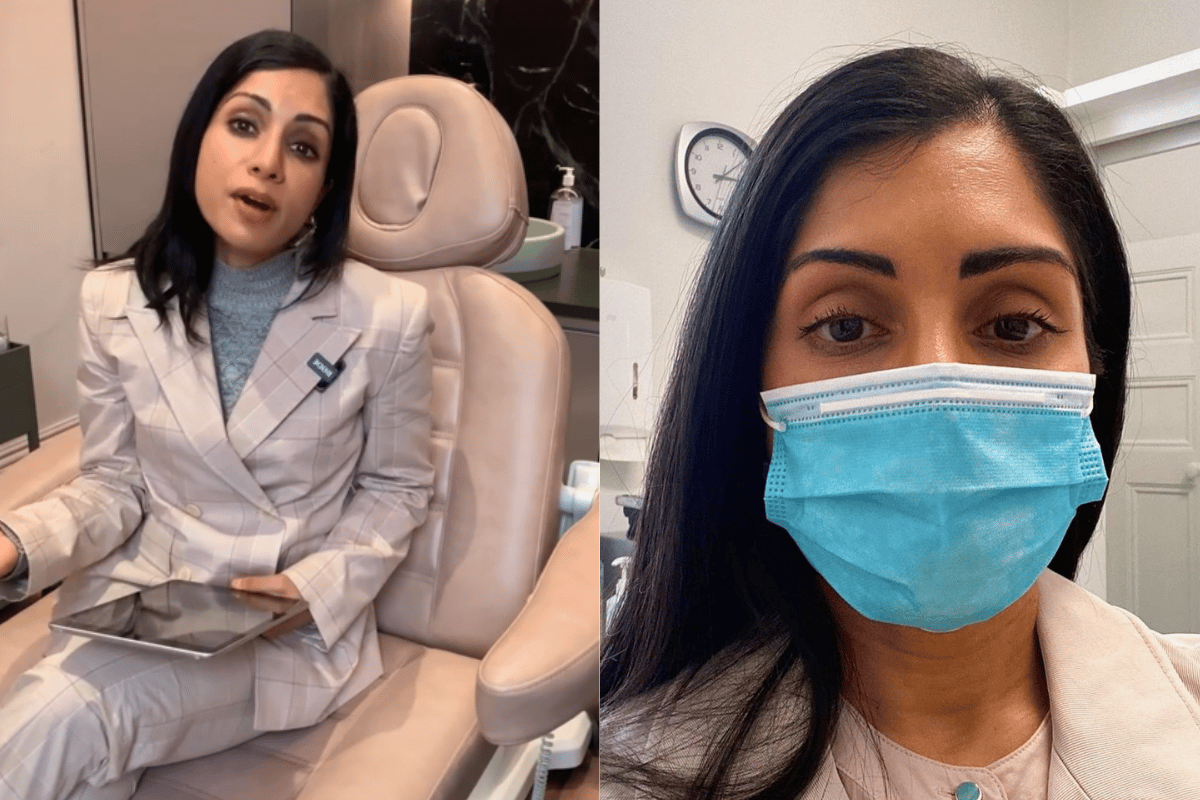
In your 50s and feel like you have no idea what you should be doing to your skin? Please take a seat. Because the truth us, it can all seem pretty overwhelming and complex.
But it really doesn't have to be.
While it's worth understanding how your skin changes through this decade and what it needs, it doesn't mean you need to completely overhaul your routine with fancy new products that'll annihilate your bank account.
Watch: Here are seven ways to improve your skin while sleeping. Post continues below.
So what should you be doing for your skin in your 50s?
We hit up dermatologist Dr Shammi Theesan (who goes by Dr Shammi) from ODE Dermatology in Melbourne and asked her exactly that. Here's what she suggested.
1. Incorporate exfoliating actives into your night routine.
"When it comes to skincare in our fifties, we really want to be targeting our skin renewal because those skin renewal enzymes become less efficient at giving us that glow," explains Dr Shammi.
Lazy buggers.
"What would normally take 28 days to go from the top layer of the epidermis to the bottom layer of the epidermis now might take 50 days."
The result? You're often dealing with a duller, more lacklustre appearance.
Listen: All the stuff your skin needs over 40. Post continues below.




























































































